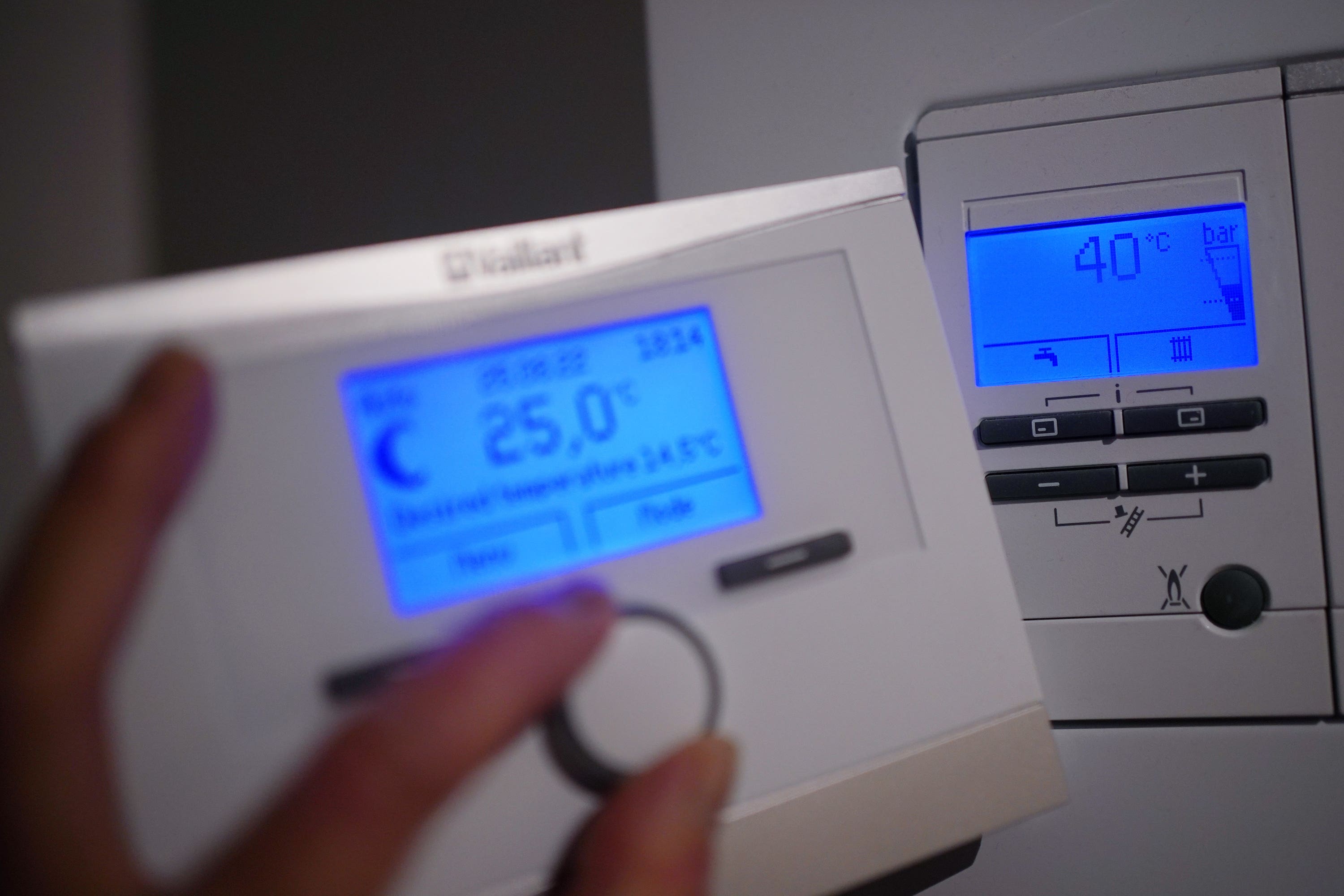Households set to learn of energy bill rise
Ofgem will announce its latest price cap on Thursday.

Your support helps us to tell the story
From reproductive rights to climate change to Big Tech, The Independent is on the ground when the story is developing. Whether it's investigating the financials of Elon Musk's pro-Trump PAC or producing our latest documentary, 'The A Word', which shines a light on the American women fighting for reproductive rights, we know how important it is to parse out the facts from the messaging.
At such a critical moment in US history, we need reporters on the ground. Your donation allows us to keep sending journalists to speak to both sides of the story.
The Independent is trusted by Americans across the entire political spectrum. And unlike many other quality news outlets, we choose not to lock Americans out of our reporting and analysis with paywalls. We believe quality journalism should be available to everyone, paid for by those who can afford it.
Your support makes all the difference.Households are set to learn that their energy bills will rise again from January as hopes for relief from the cost-of-living crisis are put on hold.
Ofgem will announce its latest price cap on Thursday, with energy consultancy Cornwall Insight predicting it will increase from the current £1,834 for a typical dual fuel household to £1,931, a 5% jump to take effect from January 1.
The forecasts suggest that the typical bill will then fall to £1,853 from the start of April, but will not drop below today’s level until July next year.
Cornwall Insight said recent milder weather was helping to bring down gas prices, and this could help reduce bills next year if it continued.
But “sharp price falls are not expected”, it said.
Dr Craig Lowrey, principal consultant at Cornwall Insight, said: “An unstable wholesale energy market, coupled with the UK’s reliance on energy imports, makes it inevitable that energy bills will rise from current levels.
“This leaves households facing yet another winter with bills hundreds of pounds higher than pre-pandemic levels, and affordable fixed deals few and far between.”
The price cap announcement comes after Chancellor Jeremy Hunt made no mention of any further help to offset household energy bills in Wednesday’s autumn statement.
Adam Scorer, chief executive of fuel poverty charity National Energy Action, said: “The gaps in this autumn statement are devastating, especially for the poorest households.
“An ‘average household’ is now paying £800 more per year to heat and power their homes since the start of the energy crisis.
“With a VAT windfall from higher energy bills and underspent money that was allocated to help vulnerable people keep warm last year, it is clear that Chancellor Jeremy Hunt had the headroom in the finances to act, but he has done nothing to help the most vulnerable people keep warm and safe at home.”
Emily Seymour, energy editor at consumer magazine Which?, said: “If you are concerned about struggling to pay higher bills, don’t suffer in silence, there is help available.
“Speak to your energy provider about a payment plan you can afford and check to see if you qualify for any government schemes.
“We’d recommend that everyone without a smart meter takes a meter reading on or close to December 31 to make sure they don’t overpay for any energy used before the new price cap takes effect.
“Submitting meter readings on a regular basis is a good idea, and makes sure you are billed correctly.”
Richard Neudegg, director of regulation at Uswitch.com, said: “This price rise will come at the worst time of year for households, who will be using more energy at home during one of the coldest points of the winter.
“The price cap is no longer fit for purpose, and the system needs reforming to create a more competitive market, which also protects households.”